As ex-Notre Dame football champ cultivated reputation as leader, his youth center faltered
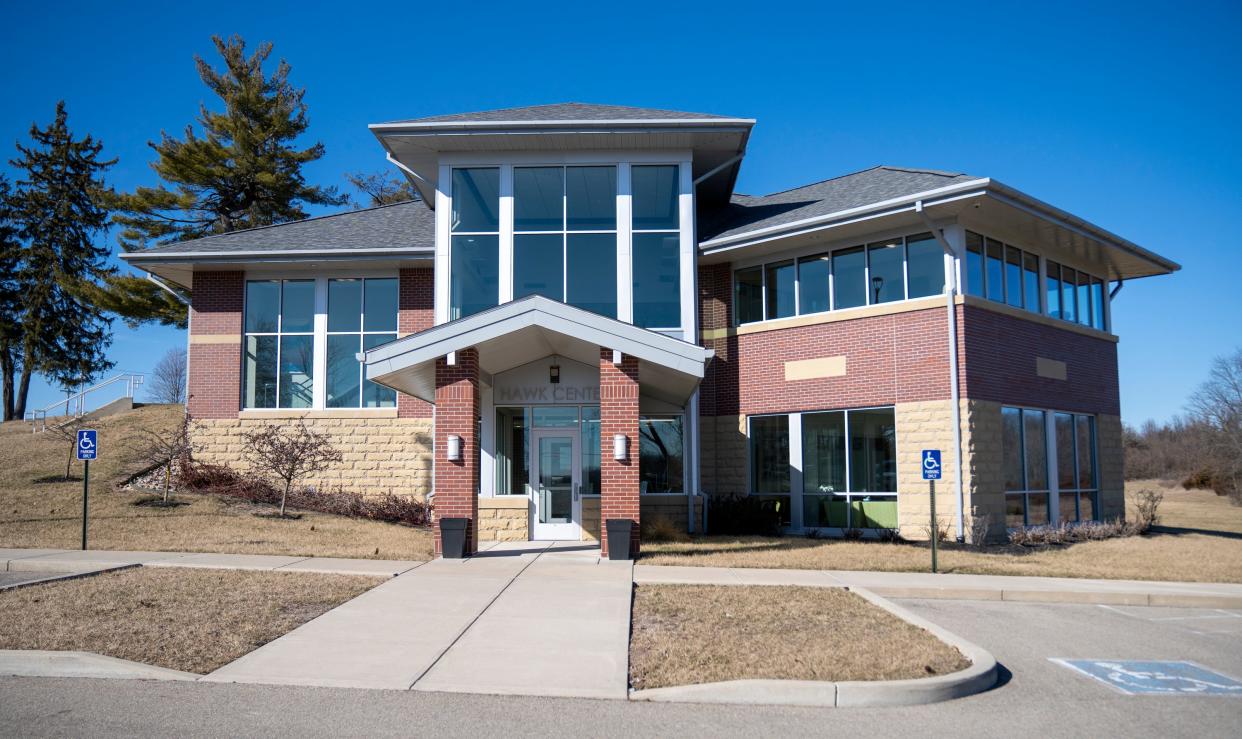
RICHMOND — Former Notre Dame football champ Darrell “Flash” Gordon presents himself as an authority on transformational leadership. His self-published book on the topic includes praise from Hall of Fame quarterback Joe Montana and legendary coach Lou Holtz.
But Gordon's leadership of an Indiana center for troubled youth is being called into question by former employees, and state regulators have detailed a history of violations at the center during his tenure.
The Indiana Department of Child Services revoked Wernle Youth & Family Treatment Center's residential licenses as of Feb. 26. The decision effectively shuttered the 94-bed facility on the south side of Richmond that has helped some of Indiana's most vulnerable youth for 145 years. Wernle is not challenging the revocation.
Wernle center had history of problems: Sexual abuse, runaways and reporting failures
Gordon, who has led Wernle for more than 20 years, attributed the loss of its licenses to a challenging post-pandemic labor market that made it difficult to attract and retain staff. Wernle increased starting wages to more than $20 an hour, he said, but still couldn't meet state-mandated staffing ratios.
But IndyStar found problems at the facility pre-date the pandemic.
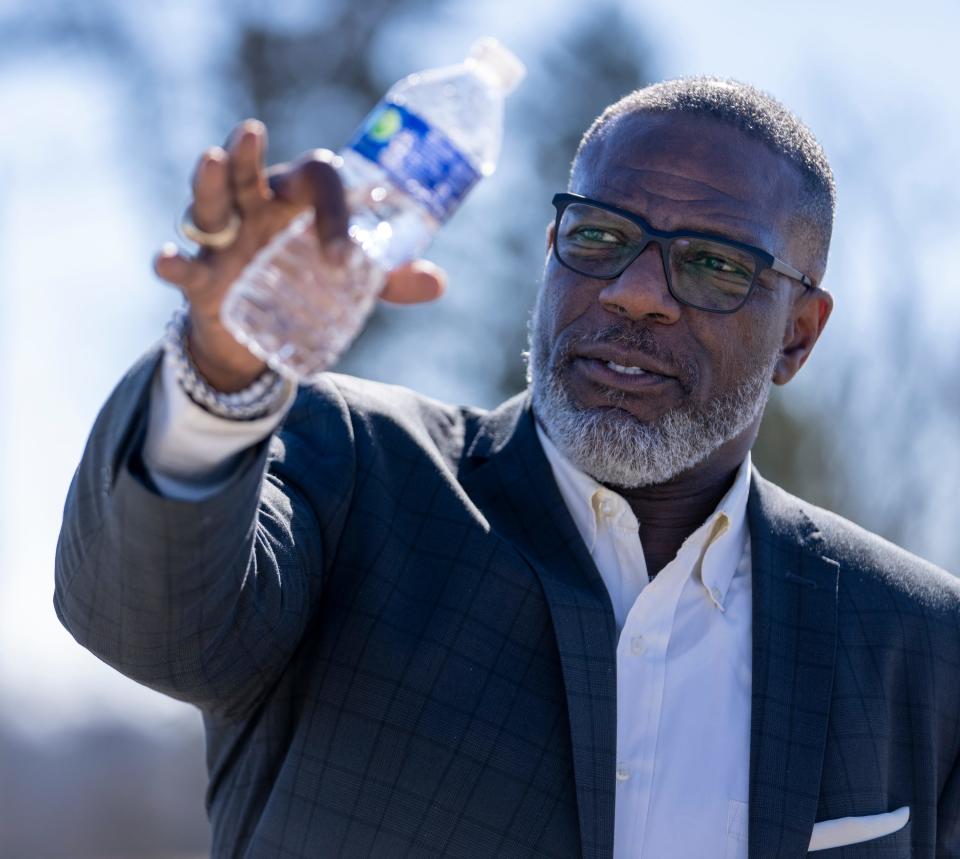
State inspection records show a pattern of violations since at least 2019. Fights among unsupervised residents left several children injured. Poorly trained staff roughed up their wards, shoving one onto a table and slamming another face-first into a concrete wall. On multiple occasions, the facility failed to report allegations of physical or sexual abuse.
The repeated problems led DCS to conclude in 2020 that "a serious and ongoing breakdown of administrative intervention appears to exist." The agency wrote in a letter to Gordon earlier this year that "the concerns and violations have persisted such that DCS is no longer assured of Wernle's ability to ensure the safety and well-being of youth placed at your facility." The violations included "inappropriate, aggressive, and non-therapeutic" staff interactions with youth that DCS said were accepted "by Wernle leadership."
DCS was not alone in its concerns.
Employees have sounded the alarm about Gordon's leadership internally for more than a decade. Several who worked closely with Gordon accuse him of focusing on his personal brand as a motivational speaker and author, sometimes at Wernle's expense.
Wernle, which has received more than $32 million from DCS since 2019, has paid for Gordon's out-of-state travel to Notre Dame football games, expenses for his paid speaking gigs, and more than $11,000 for copies of his book, "Change Does Not Occur in a Flash," according to former employees.
Meanwhile, Gordon rarely visited the residential units where kids were being put in danger, according to the former staffers, even as he collected what two Wernle executives called an "ethically reprehensible" amount of compensation.
Some grew so concerned that they went over Gordon's head and contacted Wernle board members, describing his conduct as "detrimental" and "toxic."
In an interview with IndyStar, Gordon dismissed such complaints as the gripes of poor-performing workers. He blamed many of the facility's problems on the leaders he hired, saying they failed to meet his standards for overseeing day-to-day care of the residents.
"When you hold people accountable to a high expectation," he said, "you're gonna get pushback from those who aren't willing to execute."
The organization's board is standing by Gordon. Despite the loss of Wernle's licenses, they credit him with a massive turnaround over the past two decades and say his compensation is justified. As for the Notre Dame trips, book purchases and motivational speaking, they not only support it — they encourage it.
"It's called networking," said Sandie Rowe, longtime chairperson of Wernle's board.
Not everyone agrees with the board's support for Gordon, though. Bethany Reid, whose family was one of Wernle's largest financial supporters, was a board member until October. She said she no longer felt comfortable contributing to the organization because she lost faith in Gordon.
"They're trying to blame COVID because that’s the easy thing to do," she said.
In her view, the problem was Gordon's lack of leadership and the board's complicity.
"I think he had a passion for it at one time, but I’m just not so sure that passion burns strong enough now. If my company were faltering, I’d be pulling up my bootstraps and digging in," she said. "But I didn’t get that impression. It was blame, blame, blame everything else."
Who is Darrell Gordon?
Gordon, 58, who grew up in New Jersey, played linebacker under Holtz on Notre Dame’s 1988 national championship football team. After graduating from Notre Dame, he worked for the NCAA before becoming Wernle's president and CEO in 2001.
Those who served on Wernle's board at the time said Gordon was brought in to turn around the outdated and financially struggling institution, even though he does not have the credentials the state requires to oversee day-to-day clinical care.
Since then, he's helped raise millions of dollars for the nonprofit organization, often trading on his university connections to woo donors. In addition to Holtz and Montana, celebrities Gordon has brought to Richmond to raise money and awareness include the late TV personality Regis Philbin, actor Jim Caviezel, author Nicholas Sparks and former NFL running back Jerome Bettis.
His ability to raise money helped Wernle expand its campus dramatically. It added a new administrative building, several new residential units and a wellness center with a gym and cafeteria.
The organization that had $1.6 million in liabilities when Gordon started now has $1.3 million in reserves and no debt.
Wernle’s growth bolstered Gordon’s personal success story, increasing his appeal as an inspirational role model. In 2015, he incorporated Gordon Enterprise LLC to facilitate his motivational speaking business. He published his autobiographical book on transformational leadership in 2018.
"He was not hired to be a clinical director," said Matt Gilmore, a former Wernle board member who is now a juvenile judge in Mercer County, Ohio. "He was hired to come in and elevate the profile and raise money — and he has done that and then some."
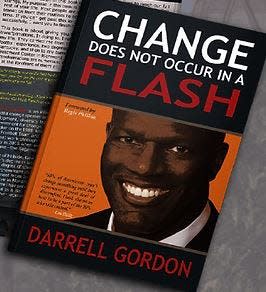
In raising Wernle's profile, however, Gordon sometimes seemed to inflate his accomplishments.
In a 2014 video for Notre Dame’s office of admission, he described himself as “a Fortune 500 CEO of a nonprofit organization.” Wernle is not a Fortune 500 company. Gordon told IndyStar he informed university officials the comment was inaccurate, but it remained online for 10 years. He couldn't explain why he said it in the first place.
"I was thinking that there's aspiration to be a leader," he said. "Sometimes I'm talking and I've gotta be careful what I'm saying."
Notre Dame spokesperson Sue Ryan said in a statement to IndyStar: "Any representations made in the video by Mr. Gordon at the time of recording ten years ago were taken at face value by Notre Dame staff." She said the university has no record of Gordon seeking corrections to the video.
Notre Dame officials took down the video last month after inquiries from IndyStar.
In another interview last year with best-selling author Matthew Kelly, Gordon described himself as a "captain" of Notre Dame's 1988 national championship team. He wasn't.
Gordon told IndyStar he called himself a captain because Holtz expected fifth-year seniors to be leaders.
"Sometimes when you perform really well, he would say, 'You're gonna be captain for the week.' Not to say that occurred for me, but sometimes that would happen, so we would just call ourselves captains," Gordon said.
"It's not legitimately the captain," he continued, "but I was one of their most prominent leaders on that national championship football team."
Reports show problems in care
While Wernle's financial condition improved under Gordon, DCS reports show it has been dogged with problems involving supervision and how children in its care were treated.
In 2019, after a 21-year-old counselor engaged in a sexual act with a 14-year-old resident behind a trash receptacle, DCS cited Wernle for failing to report alleged abuse to the DCS hotline. Wernle again failed to report an abuse allegation the next year after a resident reported an employee slammed him to the ground. DCS wrote that "issues with reporting timeliness have been a pattern for the agency ongoing."
Indiana's mandatory reporting law requires allegations of child abuse or neglect to be reported to DCS or law enforcement immediately. The Indiana Supreme Court has ruled that waiting even four hours to report suspected child abuse is too long.
DCS also cited Wernle for having inadequate staffing or leaving children unsupervised on at least 11 occasions during a six-month period in 2023. "As a result of some of the incidents, youth received injuries, and a staff member was hospitalized with an injury," according to a Jan. 26 letter from DCS informing Wernle that its licenses would be revoked.
On one occasion, DCS found, courting donors appeared to take precedent over the well-being of children. Residents were restricted to their units without warm food for several days in September as staff prepared the gym and cafeteria for Wernle's annual fundraising event, according to DCS.
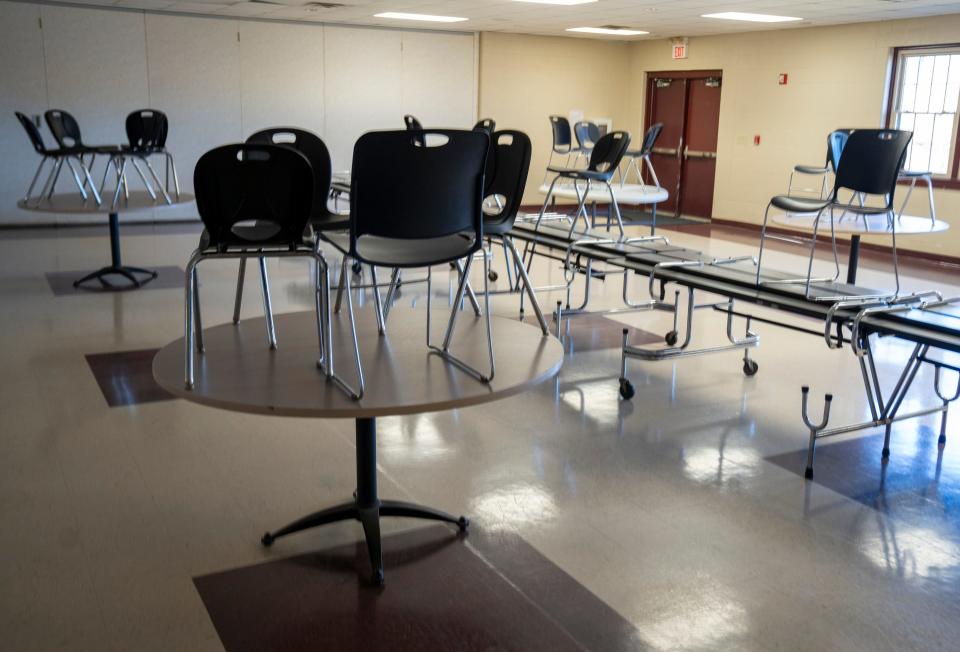
It was around that time nearly all of the organization's top staff resigned and Reid, then still a board member, pulled her financial support for the event amid concerns about Gordon's leadership.
Despite the hardship on the residents, the fundraiser never happened.
Gordon blamed others for the problems, including the former executive director, Christine Lynch-Tock, a 78-year-old former CEO of a community health center who lived in Illinois and traveled to Wernle several days a week.
She resigned in October before some of the most recent violations identified in DCS's license revocation letter had occurred. Still, Gordon said she should have brought earlier problems identified by DCS to him and the board sooner.
"You need that person that is trained in that level of care to be able to address those needs and to be honest and truthful and forthright in the information they're providing," Gordon said.
"I mean, that's what we hired that person to do," he said. "There's a lot of stuff that would be coming after the fact."
Reached by phone, Lynch-Tock declined to say much about her time at Wernle, but she staunchly rejected the suggestion she was to blame for delays in reporting problems.
"I will not accept responsibility for not letting the CEO know in a timely fashion what was going on," she said. "All DCS findings were reported to the CEO immediately, who in turn was to report them to the board."
Accounts of 'toxic culture and financial distress'
Others who worked closely with Gordon say the license revocation should come as no surprise.
In 2013, an executive assistant to Gordon wrote an eight-page letter to a Wernle board member claiming Gordon misled board members and others about things like whether he had received messages, how a gift or grant would be used, or his whereabouts.
The assistant, who later resigned, said Gordon booked a hotel room with Wernle's credit card for "a personal speech that was for his own profit" and used Wernle resources to prepare materials for his motivational speech business. Meanwhile, he rarely interacted with residents.
"His true disinterest in the boys is also seen and felt by the employees and residents," the assistant wrote. "His ways of conducting business are detrimental to Wernle's mission and the morale of all involved."
John Maley, an attorney who has represented Wernle pro-bono for years, told IndyStar he investigated those allegations at the direction of Wernle's board, as well as similar ones that arose last year. In both cases, Maley said, he found the claims were unfounded because all of Gordon's expenses were approved by the board. He said Gordon denies misleading anyone.
Two of Wernle's top executives — Chief Financial Officer James Cross and Director of Development Michael Lehner — wrote another letter to the board in September shortly before they resigned. It warned "the toxic culture and financial distress which exists today is a direct reflection of Darrell's lack of leadership."
Gordon, who commutes 70 miles from Indianapolis to Richmond, "spent a total of 129 days on campus at Wernle in 2022," the letter says.
Gordon and his supporters say he often worked off campus, taking meetings in Indianapolis and joining conference calls remotely.
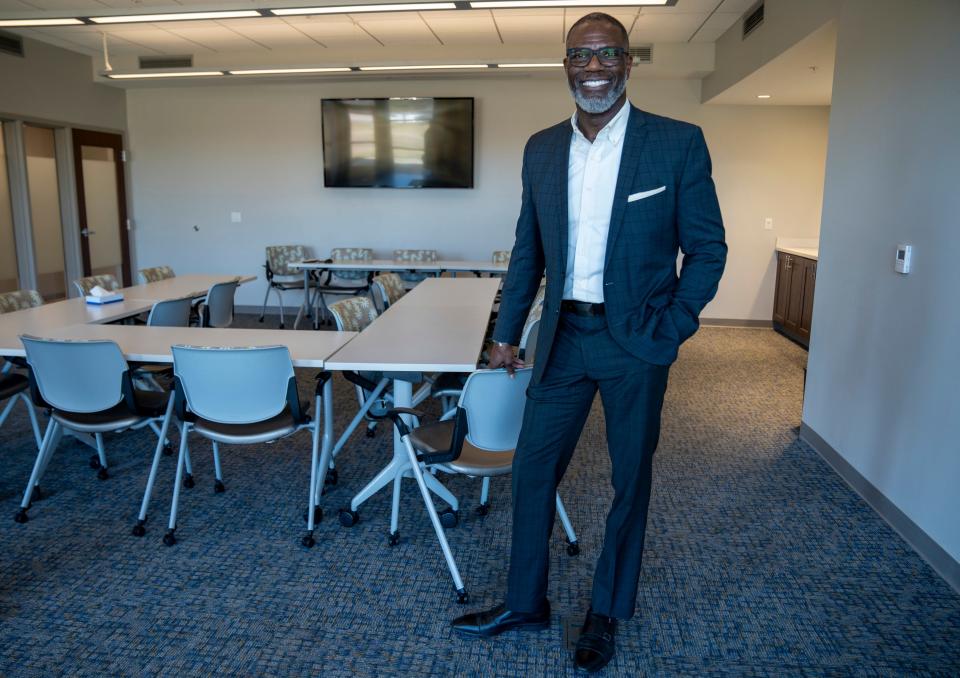
Even when he was on Wernle's campus, Cross and Lehner wrote, Gordon seemed preoccupied with his outside interests and "is barely even seen by the direct care staff in the units."
Cross and Lehner wrote that Wernle "has been operating in the red" for four years and would have lost $4 million in the last three years if not for pandemic relief programs. Still, Gordon used Wernle resources to schedule speaking engagements and update his personal website. Wernle also spent $11,336 to purchase 350 copies of his book to distribute to donors and board members, they wrote.
"During this time we believe that Darrell has distanced himself more and more from Wernle to concentrate on his outside interests," the letter says. "At one point these relationships may have fostered support for Wernle but that no longer seems to be the focus. Instead it would seem as if Wernle is being used to support his outside interest."

In his interview with IndyStar, Gordon adamantly denied his outside interests played a role in Wernle's problems.
He said he intentionally avoided spending time on the units because the board wanted him to lead a new endowment foundation for Wernle. Under that plan, the executive director would become the CEO. The plan, however, was disrupted by COVID and the staffing problems that followed, he said.
"I was really hoping to grow her so that she would lead and she didn't need me in the space to disrupt her culture development and her growth, and so I felt like it would be better if I focused on the other aspects of the business," Gordon said.
Maley attributed the complaints to a misconception among Wernle employees that Gordon isn't supposed to work outside of the campus. "But that's the job," Maley said. "You always lever what your relationships and best connections are … and he happened to have this higher profile, and this separate talent of speaking, and the board long ago said, ‘You are to do that.’ It was a board decision that was specified in the contract."
“I understand that people that are here every day think ‘Where's the boss?’" he said. "The boss has another aspect to the job.”
But Laurie Styron, executive director of CharityWatch, a Chicago-based nonprofit watchdog group, said Wernle's funding of Gordon's motivational speaking engagements and its purchase of his books raise questions about who benefitted from those expenditures.
"If a charity is incurring expenses for something," she said, "then any related revenue those expenses generate should go to the charity."
Gordon's pay also drew criticism from Cross and Lehner.
An IndyStar analysis of 10 nonprofit residential treatment providers in Indiana with similar revenue levels found Gordon's total compensation of $256,716 in 2022 was the highest. That's based on tax filings with the IRS.

But Gordon's total compensation was higher in some previous years because of a deferred compensation plan, IRS records show. One year in particular stands out: In 2018, he received $514,216 in "other reportable compensation" on top of his base salary, bringing his total compensation that year to $737,576.
Maley told IndyStar that Gordon's base salary is on par with other Lutheran-affiliated service organizations across the country. He said the large amount of other compensation was to make up for Wernle not fully funding Gordon's retirement plan in the past.
Still, in their letter Cross and Lehner called the compensation "ethically reprehensible" for the leader of a "financially struggling nonprofit."
"Before DCS formally shuts Wernle down for poor performance," they said in their letter to the board, "we implore you to take action."
Amid concerns, little action
Despite repeated red flags about Gordon's leadership, he has maintained his position largely thanks to the steadfast support of several longtime board members and Maley, a high-powered attorney whose family has supported Wernle for years.
In 2013, for example, concerns about Gordon's management found their way to a Richmond radio station. KICKS 96 News Director Jeff Lane interviewed employees and gathered receipts and emails showing Gordon used Wernle funds for flights to out-of-state Notre Dame football games and for a hotel following a motivational speaking engagement.
But the story never aired. The radio station backed down after receiving a letter from Maley, a partner at Indiana's largest law firm, Barnes & Thornburg, and a former president of the Indianapolis Bar Association. Maley's mother is a member of Wernle's board of directors and one of the organization's residential units, Maley Hall, is named in honor of the family.
In the letter, Maley emphasized the motivational speaking engagements are explicitly permitted under Gordon's contract and the Notre Dame trips were funded from a $55,000 expense account for Wernle's $10 million Community of Hope fundraising drive.
"Many of the millions in fundraising that have come to Wernle through Darrell's outreach have been through Darrell's Notre Dame connections," he wrote.

Maley concluded his letter to the radio station with a warning.
"As legal counsel for Wernle, I caution that the disparaging allegations that have been made against Wernle and its CEO are defamatory per se and unfounded," he wrote. "Even questioning that implies or suggests unethical or illegal conduct is a form of defamatory publication, and I will seek full legal redress against any person and entity that engages in defamation."
Maley told IndyStar the radio station's general manager and legal counsel "concurred that there was no basis to publish the libelous complaints, and the complaints were not published."
Lane, the news director, said the station believed in its reporting but decided against airing the story because it didn't want to become entrenched in a potentially expensive legal fight.
'Culture starts with the leader'
Maley, who like Gordon is a Notre Dame alum, also investigated the complaints in the September letter from Cross and Lehner. He concluded they were not credible, describing the pair as poor performers who refused to cooperate with his investigation.
Cross and Lehner denied they were poor performers. They said they received high marks on their annual reviews. Cross said the organization's annual financial audits improved during his time at Wernle. Lehner said fundraising was $200,000 ahead of the previous year before he resigned. They said they declined to be interviewed by Maley because they believed he would dismiss complaints about Gordon.

The concerns outlined in their letter prompted Reid, then a member of Wernle's board and one of its largest donors, to stop her financial support. Her family and its company had donated more than $2 million over the years, she said. A residential unit, Sharpe Hall, is named after the family (Sharpe is her maiden name).
Her decision effectively scuttled Wernle's annual Catalyst4Change fundraising event last year, which Reid's company, Health Care Logistics, had planned to underwrite.
"I wanted a leadership change," Reid told IndyStar, "because we needed a culture change, and culture starts with the leader at the top."
Maley told IndyStar he urged board members not to investigate allegations about Gordon on their own, but Reid said she spoke directly to employees anyway.
"I was just doing my fiduciary duty," Reid said. "It wasn’t for a lack of trying. I did everything I could."
The board voted not to renew her membership in October.
'We missed the target'
Wernle's 90-acre campus now feels desolate. The residential halls are empty. Chairs are stacked on top of tables in the dining room. The hardwood floor of the darkened gym gathers dust. A few leftover items sit on the shelves of the wellness center's small commissary: fidget spinners, bags of chips, a few pairs of fuzzy socks.
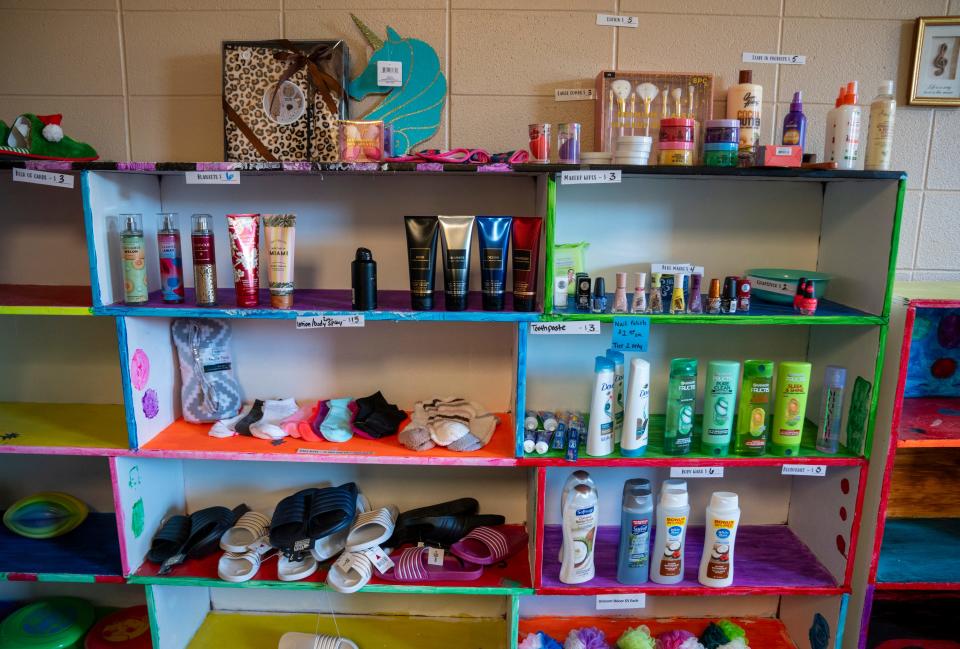
Gordon, however, remains optimistic the campus he helped build will find new life.
"We want to continue to have an unbelievable image," he said, "and we want to continue to change lives for people."
Gordon initially said in a Feb. 14 interview that the organization is hoping to transition to more outpatient and home-based services, a move some other DCS contractors made years ago as the state shifted away from residential placements for abused and neglected children. It's a step Cross and Lehner say a good leader would have taken much earlier.
But in a statement Saturday, the organization announced it is suspending its outpatient program as it evaluates "other opportunities for serving the community through our campus and facilities."
"Our Board leadership and our core staff leadership team, with the continued assistance of outside experts, are actively engaged in this confidential process with third parties," the statement said.
Ed Zumstein, a member of Wernle's board for more than 20 years, is among those who continue to support Gordon. He gave a blunt assessment, however, of what happened at Wernle.
"Hindsight is 20/20," he said. "But reality is we missed the target. And you can't sugarcoat that. We're dealing with people's lives here."
Contact IndyStar reporter Tony Cook at 317-444-6081 or tony.cook@indystar.com. Follow him on X: @IndyStarTony.
This article originally appeared on Indianapolis Star: Youth center loses license. Is CEO, former Notre Dame champ, to blame?

